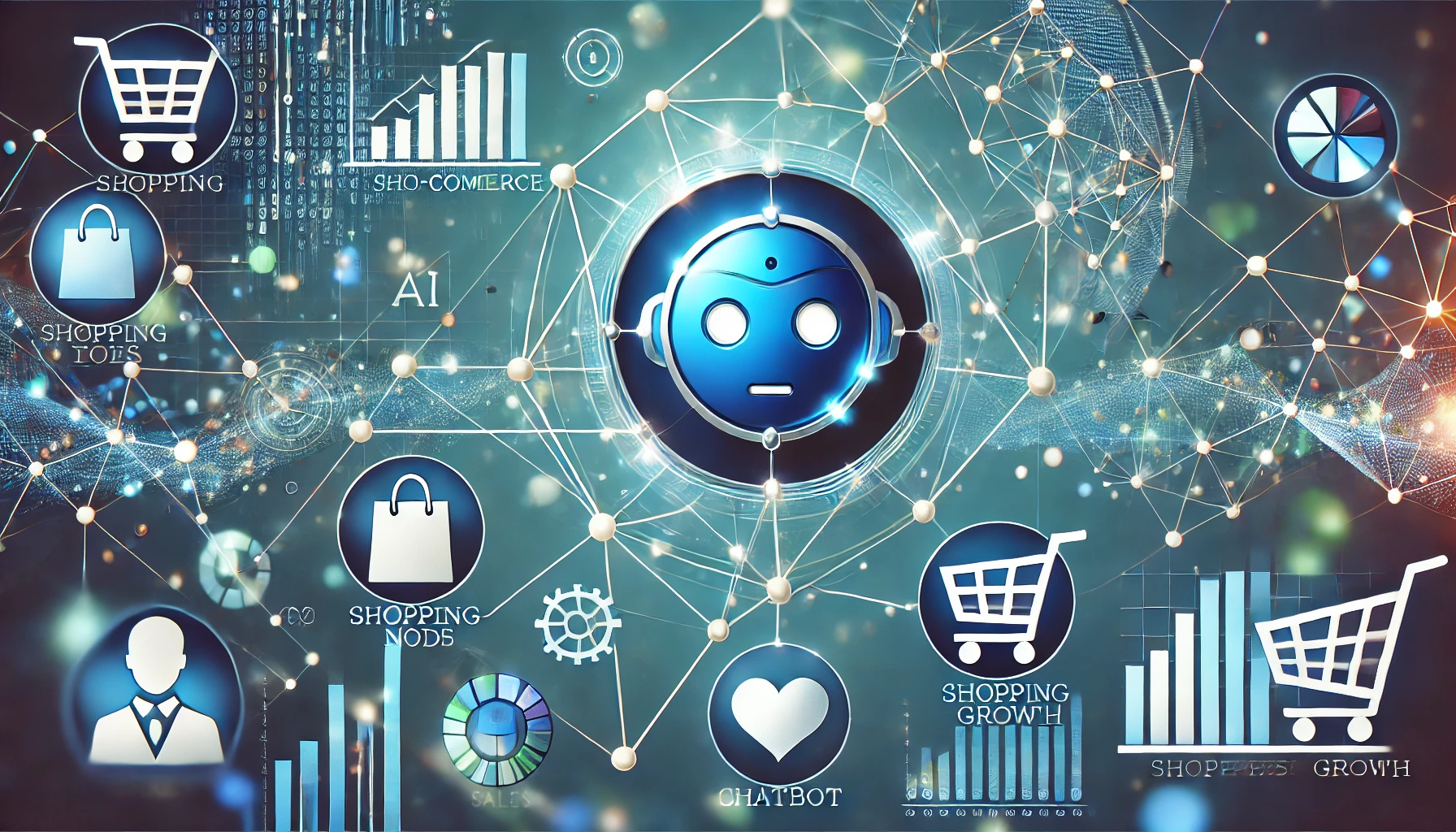What if your business could understand every customer’s needs as if you had a personal conversation with each of them? AI technology is making this possible for e-commerce brands across the globe.
By integrating AI marketing tools into their operations, businesses are transforming how they attract, engage, and convert customers.
AI doesn’t just automate processes—it adds intelligence to them, delivering precision, personalization, and power to online stores like never before.
Let’s explore how these tools are helping e-commerce businesses boost their sales while creating memorable customer experiences.
Personalization and Customer Experience
Imagine visiting an online store that seems to know exactly what you’re looking for. That’s the magic of AI personalization. AI marketing tools analyze vast amounts of customer data—browsing habits, purchase history, and even real-time behavior—to recommend products that match a shopper’s preferences.
These tools create a customized shopping journey, helping businesses boost sales and customer loyalty.
Take Netflix as an example. Although not e-commerce, their AI-powered recommendation engine accounts for 80% of the content users watch.
In a similar vein, e-commerce companies use this technology to suggest products that resonate with customers, increasing average order values and repeat purchases.
Another standout application is dynamic pricing, where AI adjusts prices in real-time based on demand, competition, and other factors. This ensures businesses stay competitive while maximizing profitability.
For instance, if a product is trending, AI can raise prices slightly to improve margins, while offering discounts when stock levels are high to clear inventory.
AI also enhances the customer journey through tools like virtual try-ons and augmented reality (AR).
For fashion and beauty brands, AI allows customers to see how a product looks or works before making a purchase, reducing the likelihood of returns and improving satisfaction.
Marketing Automation
E-commerce marketing has many moving parts, and automation is key to handling them efficiently. AI marketing tools excel in streamlining marketing tasks like email campaigns, social media management, and audience segmentation.
Email Marketing on Autopilot AI-driven email marketing tools allow businesses to send hyper-personalized emails to customers. Imagine a shopper who leaves items in their cart.
An AI-powered system can automatically send a follow-up email featuring those items, along with personalized recommendations or even a time-sensitive discount. This level of engagement often turns abandoned carts into completed purchases.
Social Media Optimization AI tools like Hootsuite or Buffer use machine learning to determine the best times to post on social media, analyze engagement data, and even suggest content ideas.
With AI’s help, brands can focus on creating meaningful connections with their audience rather than spending hours on manual tasks.
The integration of AI marketing tools has transformed marketing strategies by enabling businesses to analyze audience behavior more effectively and deliver campaigns that resonate with them.
These tools don’t just save time; they amplify the impact of every marketing dollar spent.
Revolutionizing Customer Support with AI
Customer support can make or break an e-commerce business. When shoppers have questions or concerns, they expect quick, accurate responses—and that’s where AI-powered chatbots shine.
These virtual assistants handle everything from order tracking to answering frequently asked questions. Unlike traditional customer service, chatbots work 24/7, ensuring customers always get the help they need.
But what makes AI-powered bots even more impressive is their ability to learn from interactions. They can improve their responses over time, making conversations feel more human and engaging.
For a more personalized approach, virtual shopping assistants guide users through the purchasing process. These AI assistants help customers find the right products based on their preferences, ask clarifying questions, and even suggest complementary items.
By replicating the in-store experience online, virtual assistants drive higher customer satisfaction and sales.
Content Creation and SEO Optimization
Creating engaging, SEO-friendly content is a constant struggle for e-commerce businesses, but AI tools are making this process easier and more effective.
AI-powered content generation tools like Jasper and Copy.ai help write product descriptions, blog posts, and even ad copy in seconds. These tools ensure the content is not only compelling but also tailored to specific audiences.
SEO Optimization Made Easy AI also takes the guesswork out of search engine optimization (SEO). Tools like SEMrush and Clearscope analyze search trends, identify high-performing keywords, and suggest ways to improve content rankings.
This ensures that your products appear in front of the right audience when they’re searching for solutions you offer.
For example, an AI tool might identify that “affordable running shoes” is trending and recommend creating blog posts or ads targeting that keyword. With AI-driven SEO, businesses can improve their visibility and attract more organic traffic, giving them a competitive edge in a crowded marketplace.
Smarter Decision-Making with Data Analysis and Predictive Analytics
Data is the backbone of any successful e-commerce business, but making sense of it can be overwhelming. That’s where AI excels.
AI-powered analytics tools can process massive datasets in seconds, uncovering patterns and trends that would take humans days—or even weeks—to identify.
Understanding Customer Behavior AI tools analyze customer interactions across platforms to create detailed buyer personas. These insights allow businesses to target specific customer segments with tailored marketing strategies.
For example, if data shows that a group of customers often buys outdoor gear in the spring, a business can launch a targeted campaign just before the season starts.
Sales Forecasting Predictive analytics is another game-changer. AI can predict which products are likely to be bestsellers in the coming months, helping businesses plan inventory and avoid stockouts or overstocking.
It also provides insights into seasonal trends, enabling smarter decisions about marketing budgets and promotional strategies.
AI Success Stories
AI is already delivering results for e-commerce giants and small businesses alike. For example, Amazon uses AI for everything from personalized recommendations to dynamic pricing. Their AI-driven strategy is one reason behind their massive success in converting casual browsers into loyal customers.
Similarly, Shopify has introduced AI tools like Shopify Magic and Sidekick to help merchants streamline operations, generate content, and offer better customer service.
These tools have enabled even small e-commerce businesses to leverage the power of AI, leveling the playing field against larger competitors.
The Future of E-commerce is AI-driven
AI marketing tools have become essential for e-commerce businesses that want to stay competitive and thrive in an ever-changing market.
By personalizing customer experiences, automating complex tasks, and delivering actionable insights, AI is driving better results across the board.
The benefits are clear: increased sales, happier customers, and more efficient operations. The question isn’t whether to adopt AI or not. It’s how quickly you can integrate these tools to start reaping the rewards.
As technology evolves, the potential for AI in e-commerce will only continue to grow. The time to act is now.


